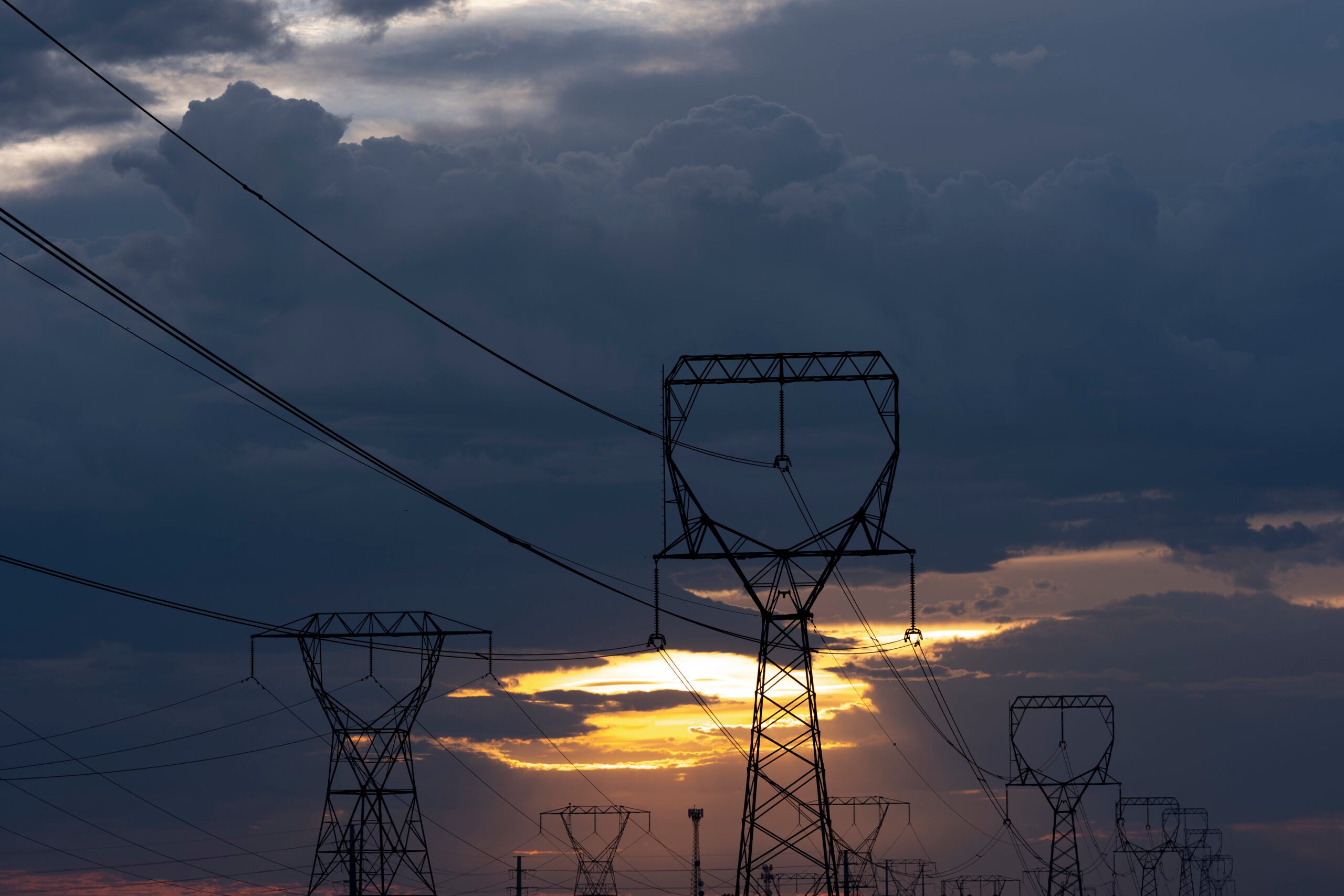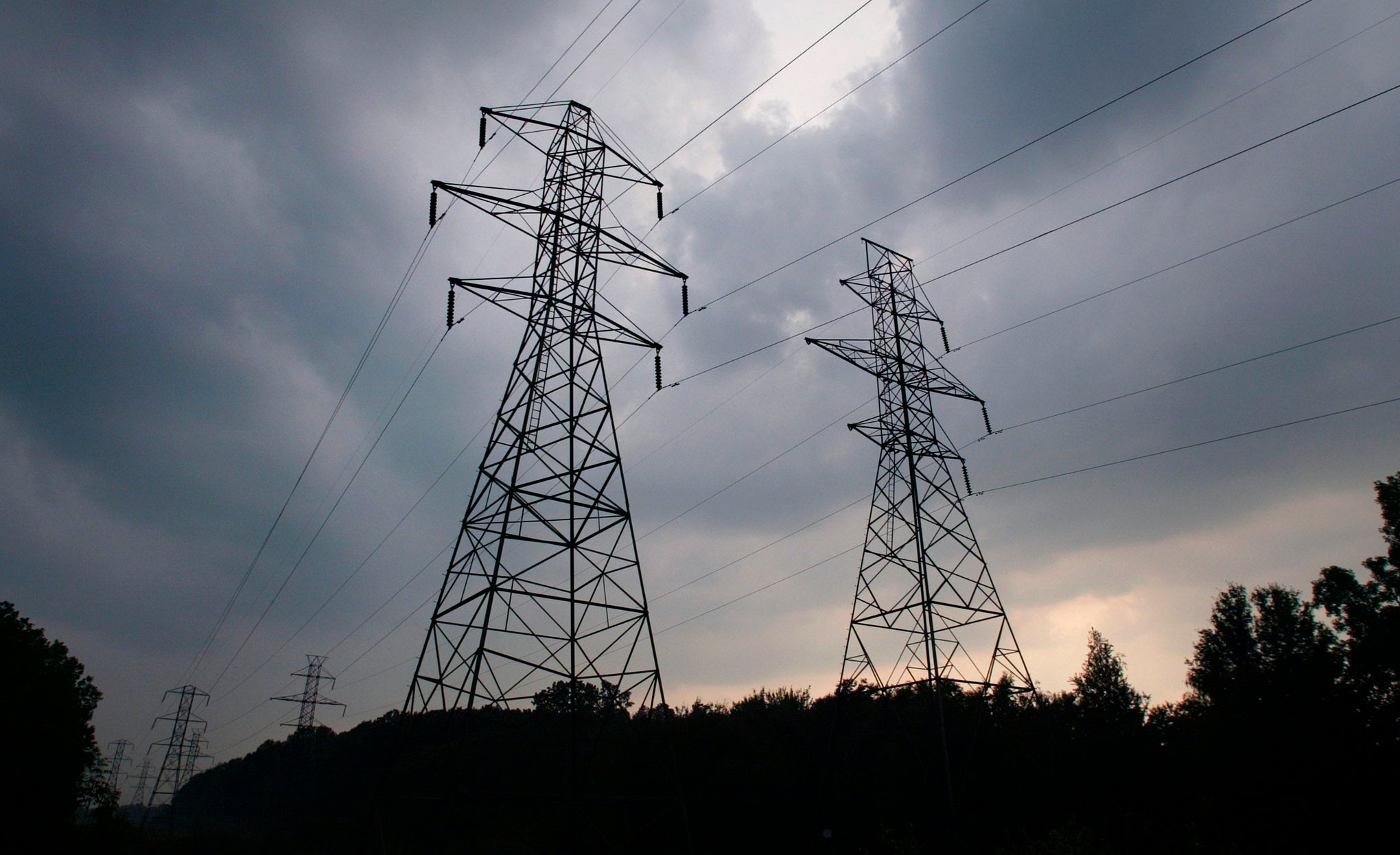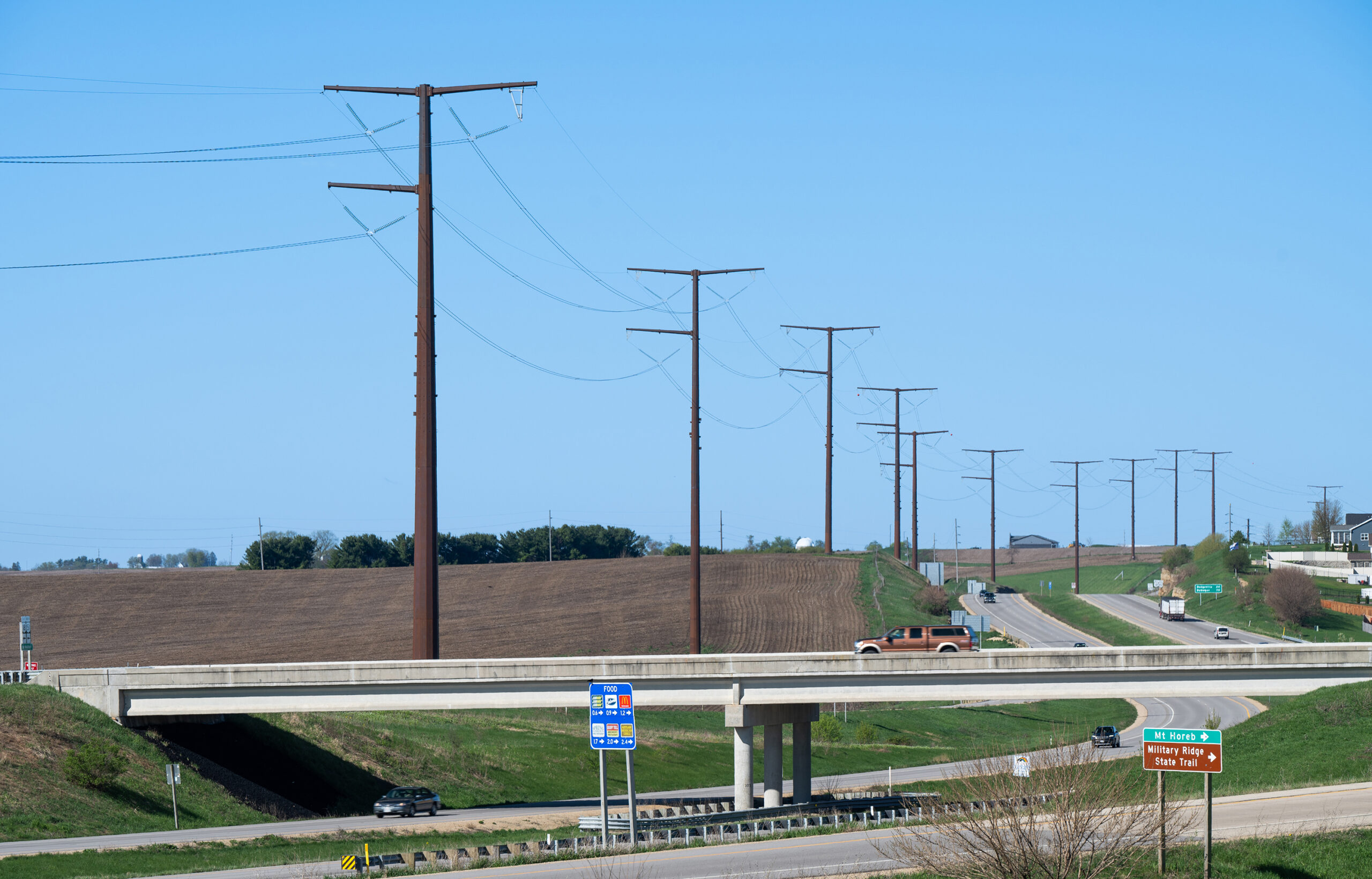Construction of a controversial transmission line is underway at a Mississippi River crossing even as court battles continue over the project’s path through a national wildlife refuge.
American Transmission Co., ITC Midwest and Dairyland Power Cooperative Utilities began building the Cardinal-Hickory Creek transmission line near Cassville on Monday. Work is underway after utilities finished a land swap last week that exchanged part of the Upper Mississippi River National Wildlife and Fish Refuge there for another property in Grant County.
Conservation groups, including the Wisconsin Wildlife Federation and Driftless Area Land Conservancy, have been trying to block the project in the refuge with a series of legal challenges. A federal judge held a hearing Tuesday to consider their request for a preliminary injunction. But U.S. District Judge William Conley said he’s holding off on a ruling until he can examine new facts in the case.
“There has to be some place in which the two ends of this power line are going to be connected, and that’s a factor that works in favor of the defendants,” Conley said.
News with a little more humanity
WPR’s “Wisconsin Today” newsletter keeps you connected to the state you love without feeling overwhelmed. No paywall. No agenda. No corporate filter.
In March, conservation groups sued to block the land exchange and halt construction, and Conley granted that request. Utilities appealed the decision. Last week, the U.S. Seventh Circuit Court of Appeals overturned the court’s order, saying Conley didn’t find groups were likely to succeed on the merits of their case.
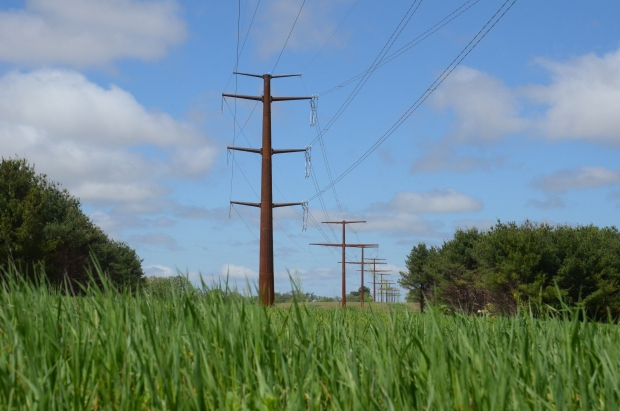
Photo courtesy of American Transmission Company
An attorney for utilities said work on foundations for towers is expected to begin the week of May 27 for the 1.1-mile segment on the line. Those structures will be 75-feet tall at most with the exception of one 200-foot tower, according to utilities. Conservation groups are hoping to delay or prevent further work near Cassville.
They argue the Rural Utilities Service, U.S. Fish and Wildlife Service and Army Corps of Engineers violated multiple laws by signing off on the land swap and granting other approvals for the project without sufficient public input. Howard Learner, an attorney for conservation groups, said the transmission line isn’t compatible with the purpose of the refuge.
“We are now in a position in which the transmission companies — despite being requested to not build — are continuing to move forward, And the refuge is being damaged and harmed,” Learner said, executive director of the Environmental Law and Policy Center.
Conley said he’s open to possibly issuing an injunction after reviewing new findings, saying utilities are doing “real damage” at the crossing near Cassville.
Learner highlighted new details Tuesday about the value of the Grant County or Wagner parcel exchanged for refuge land. He said appraisals show it’s worth less per acre than the refuge land and surrounded by a rail line, RV trailer park, airport and gravel pits.
Attorneys for the utilities and federal government argued the appraisals show the market value rather than the conservation benefits offered by the property.
Stacey Bosshardt, an attorney for utilities, said the Wagner parcel was identified as a top priority for the refuge because of its unique habitat for mussels.
“I think that’s what the Fish and Wildlife Service is looking at — not what it’s worth to people, but what it’s worth to wildlife,” Bosshardt said.
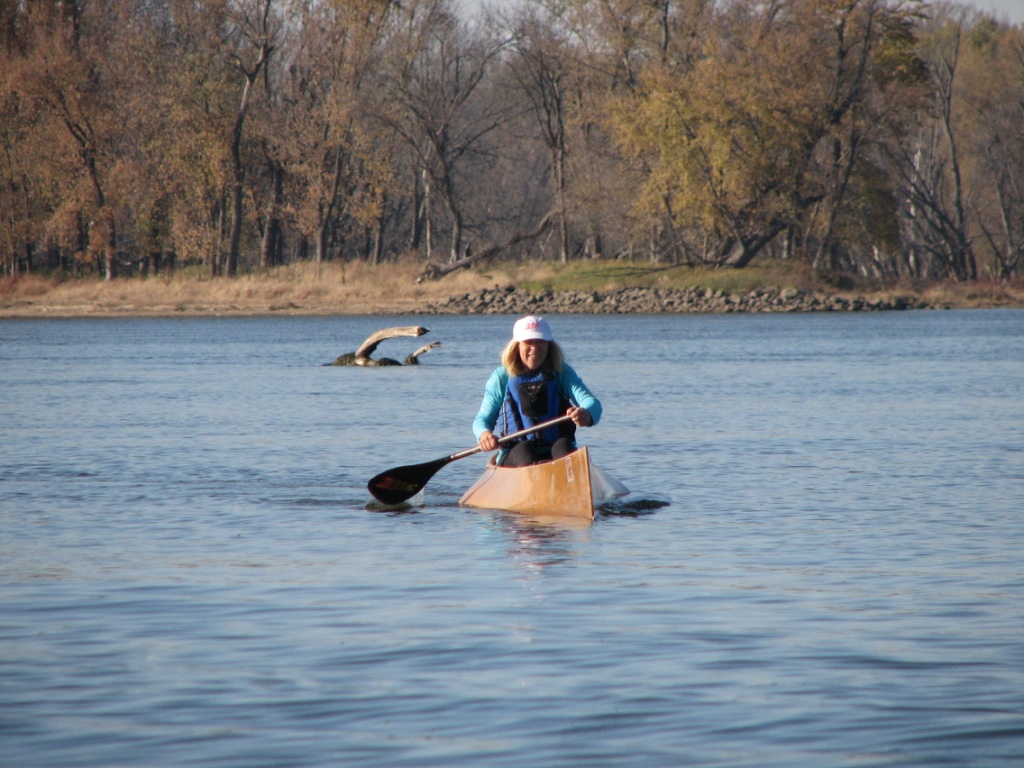
For Dena Kurt, a member of the conservation groups, she said refuges represent undeveloped areas that preserve the environment and provide a break from urban areas. When she paddles through the refuge now, she said it’s become harder to escape development along the riverfront.
“It’s stressing me not to be able to go places to hike, to paddle, to bike, to contemplate without noise, sound or visible industrial towers and manmade objects dominating the landscape,” Kurt said.
Kurts said she fears utility crossings like the transmission line are breaking up and further fragmenting a very fragile ecosystem, posing negative effects to birds and wildlife.
In a statement, utilities said construction will seek to minimize effects on the environment, wildlife and habitat fragmentation. Owners of the line said they will clear vegetation after surveying land that they recently acquired through the refuge.
The project’s owners are almost done building the nearly $650 million transmission line that runs 102 miles from Dane County to Dubuque County in Iowa. The eastern half of the transmission line came online in December. Utilities have said the project is necessary to tie 161 renewable energy projects into the Midwest regional power grid.
Editor’s note: The story has been updated to correct the height of towers within the refuge crossing.
Wisconsin Public Radio, © Copyright 2025, Board of Regents of the University of Wisconsin System and Wisconsin Educational Communications Board.



